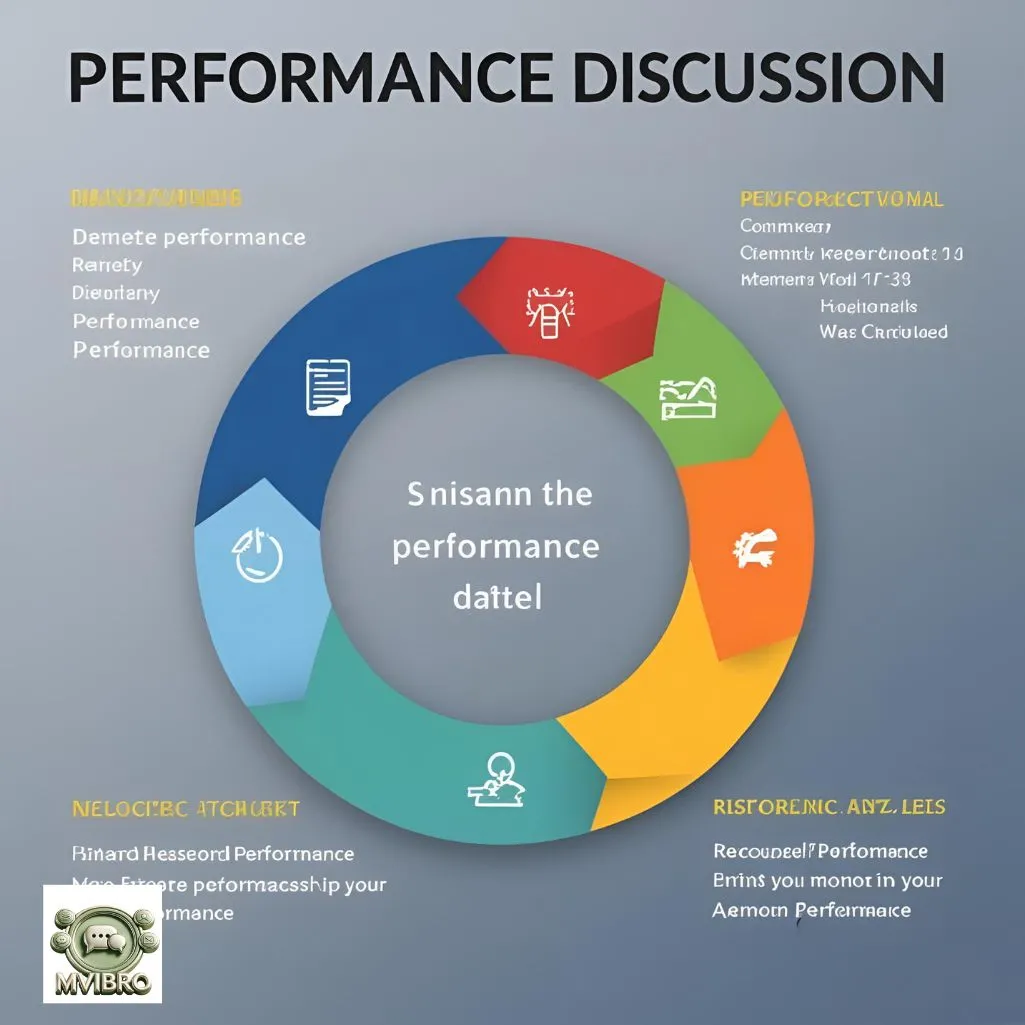“How to Respond to a Salary Increase Email Professionally – Master the Art of Communication”
Receiving a salary increase email can be a moment of great achievement, but it also calls for a well-thought-out response. How to respond to a salary increase email professionally is not just about saying “thank you.” It’s an opportunity to express your appreciation while also positioning yourself for future growth and continued success.
When you’re thrilled with the offer or need to discuss specifics, responding thoughtfully can strengthen your professional image. Now that you’ve received the offer, it’s time to craft a reply that aligns with your career goals.
Take a moment to reflect on your value to the company, acknowledge the opportunity, and express gratitude for the recognition. A well-written response shows your professionalism and can even set the tone for future negotiations or career development.
In this blog post, we’ll explore how to respond to a salary increase email in a professional and respectful way. We will cover the essential points to include in your response, offer strategies for handling negotiations, and provide insights into maintaining a positive working relationship with your employer. By the end, you’ll feel confident in navigating this important step in your career.
List of response to a Salary Increase Email Professionally
- Acceptance
- Rejection
- Negotiation
- Request for More Information
- Gratitude and Appreciation
- Feedback
- Future Considerations
- Personal Circumstances
- Formal Acknowledgment
- Expressing Concerns
- Timing Concerns
- Performance Discussion
- Market Comparison
- Job Role Clarification
- Expression of Commitment
- Impact on Team Dynamics
- Professional Development
- Short-Term vs. Long-Term Goals
- Company Financial Health
- Follow-up Actions
Acceptance
- Begin with a heartfelt thank you.
- Express enthusiasm about the new role and responsibilities.
- Highlight your excitement about contributing even more to the company.
- Acknowledge the recognition of your hard work.
- Confirm your acceptance of the offer.
- Share how the increase will motivate you.
- Reaffirm your commitment to the company’s goals.
- Show appreciation for your manager’s trust in you.
- Keep the tone positive and forward-looking.
- Mention any new responsibilities you’re excited to take on.
- Provide a statement of gratitude for the opportunity.
- End the email with a sense of anticipation for future growth.
- Express confidence in your future contributions.
- Reinforce your eagerness to continue collaborating with the team.
- Sign off professionally, reiterating your excitement.
Rejection
- Politely acknowledge the offer.
- Thank your employer for the opportunity.
- Express regret at not being able to accept the increase.
- Provide a brief reason for your decision.
- Be respectful and diplomatic.
- Avoid negative language about the company or your role.
- Emphasize your continued commitment to the company.
- Offer to discuss the situation further if necessary.
- Avoid criticizing the offer directly.
- Focus on your desire for professional growth and future opportunities.
- Express interest in revisiting the conversation later.
- Ensure the tone is professional and considerate.
- Keep the message short and clear.
- Reinforce your enthusiasm for your work.
- Close with gratitude for the offer and support.
Negotiation
- Express appreciation for the offer.
- State that you’d like to discuss the salary increase further.
- Provide a rationale for your request (e.g., market comparison).
- Mention any accomplishments that warrant a higher salary.
- Be respectful and courteous in your request.
- Suggest a specific salary amount or range.
- Back up your request with facts (e.g., performance data).
- Show flexibility and willingness to find a mutually agreeable solution.
- Ask for more information on how compensation is determined.
- Clarify if any additional responsibilities are involved.
- Suggest a meeting or call to discuss the details.
- Be open to negotiating other benefits (e.g., vacation days).
- Avoid being overly assertive or demanding.
- Reinforce your commitment to the company.
- Conclude with appreciation for their consideration.
Read Also : How to Respond to a Salary Increase Email Professionally
Request for More Information

- Thank the employer for the offer.
- Mention your interest in understanding the details further.
- Ask for clarity on the effective date of the salary increase.
- Request details about any changes in your job role.
- Ask about potential bonuses or other financial benefits.
- Inquire about how the increase compares to industry standards.
- Seek clarification on performance expectations.
- Ask about any performance metrics tied to the increase.
- Request details on benefits that come with the increase.
- Clarify when the increase is a one-time adjustment or part of a series.
- Inquire about how the company evaluates salary increases.

- Request information on any changes to your job title.
- Ask if the salary increase aligns with company-wide compensation changes.
- Request a timeline for further salary reviews.
- Ensure the tone is polite and professional.
Gratitude and Appreciation

- Begin by thanking the employer for the offer.
- Express genuine appreciation for the recognition.
- Acknowledge the positive impact of the salary increase.
- Mention how the increase motivates you to contribute further.
- Share your excitement about continuing your journey with the company.
- Emphasize your commitment to excellence in your role.
- Thank your manager for their ongoing support.
- Reaffirm your dedication to the team and company.
- Express enthusiasm about the new challenges ahead.
- Appreciate the company’s commitment to employee development.
- Show gratitude for the company’s recognition of your hard work.
- Thank the team for their support in achieving this milestone.
- Make sure your tone conveys sincere gratitude.
- Keep your message positive and appreciative.
- End by reiterating your excitement for the future.
Feedback
- Thank your employer for the salary increase.
- Provide constructive feedback about the process.
- Mention areas where the salary increase could be more transparent.
- Discuss any concerns about the timing of the increase.
- Provide feedback on any new job responsibilities that come with the raise.
- Suggest improvements to future salary increase procedures.
- Ensure your feedback is professional and helpful.
- Offer insights into how performance can be better measured.
- Acknowledge the positive aspects of the increase.
- Focus on future collaboration rather than past shortcomings.
- Keep the feedback solution-focused.

- Avoid personal complaints or negativity.
- Emphasize your interest in professional growth and feedback.
- Keep the tone constructive and respectful.
- End by expressing your gratitude for their attention to your feedback.
Future Considerations
- Acknowledge the salary increase with gratitude.
- State that you’d like to discuss future opportunities.
- Ask about long-term compensation growth.
- Express interest in discussing your career path.
- Inquire about upcoming performance reviews.
- Ask for insights into career development opportunities.
- Discuss potential future responsibilities.
- Mention your desire for continual professional growth.
- Seek clarification on goals tied to future salary reviews.
- Show eagerness to contribute to long-term company success.
- Ask about opportunities for advancement within the company.
- Express interest in taking on new challenges.
- Discuss any additional training or skills that may enhance your value.
- Confirm your commitment to growth and progression.
- Close with an expression of excitement about your career trajectory.
Personal Circumstances

- Acknowledge the salary increase with gratitude.
- Share personal circumstances that may affect your decision.
- Be respectful and professional in explaining the situation.
- Mention if you need additional time to evaluate the offer.
- Discuss any personal obligations that may require consideration.
- Ask for flexibility in the timing or amount of the increase.
- Highlight your continued commitment to the company despite personal circumstances.
- Avoid being overly detailed about personal issues.
- Express appreciation for the understanding of your situation.
- Be clear about your needs and how they affect the decision.
- Keep the tone respectful and appreciative.
- Ensure the response remains professional despite personal matters.
- Show openness to future discussions.
- Thank the employer for their consideration of your situation.
- Conclude by reaffirming your dedication to the role.
Formal Acknowledgment
- Thank the employer for the salary increase in formal terms.
- Acknowledge the specific details of the offer.
- Confirm your understanding of the salary increase terms.
- Acknowledge the effective date and any conditions attached.
- Express your formal acceptance of the offer.
- Use professional and courteous language.
- Ensure the tone is respectful and businesslike.
- Confirm your ongoing commitment to the company’s success.
- Clarify any questions or ambiguities about the offer.
- Avoid casual language or informal phrasing.
- Confirm any agreed-upon follow-up actions.
- Be concise and to the point.
- Reinforce your enthusiasm for continuing your work.
- Use clear and formal language throughout the email.
- Close with gratitude and a formal sign-off.
Expressing Concerns

- Politely express any concerns regarding the salary increase.
- Acknowledge the offer before discussing concerns.
- Be specific about the areas of concern.
- Focus on how the issue affects your decision.
- Provide context for your concerns in a professional manner.
- Avoid making the email confrontational.
- Request a meeting or discussion to address concerns.
- Show respect for the employer’s position.
- Keep the concerns solution-oriented.
- Reaffirm your commitment to your role despite concerns.
- Avoid criticism of the company or the team.

- Express interest in finding a resolution together.
- Keep the tone respectful and constructive.
- Seek clarification on any points causing concern.
- End the email professionally, maintaining an open line of communication.
Timing Concerns
- Respond within 24–48 hours to show professionalism.
- Start your email with a greeting and acknowledgment of the salary increase.
- Avoid hasty replies; draft and revise your message.
- Clarify details about the increase if necessary.
- Include a closing remark to reflect thoughtfulness.
- Confirm that you understand the offer and its terms.
- Set a timeline for further discussion, if required.
- Avoid overly short or generic responses.
- Use polite language to maintain a positive tone.
- Thank the employer for recognizing your contributions.
- If busy, send a brief acknowledgment and follow up later.
- Avoid using jargon or overly complex wording.
- Ensure your email tone aligns with the company’s culture.
- Keep your response concise but meaningful.
- Express enthusiasm about the opportunity.
Performance Discussion

- Highlight recent achievements that contributed to the increase.
- Mention specific goals you’ve exceeded.
- Express gratitude for the recognition of your efforts.
- Relate the salary increase to your job performance.
- Keep your points factual and concise.
- Reference positive feedback from team members or managers.
- Avoid bragging; focus on professional results.
- Address any metrics or KPIs you’ve excelled in.
- Show confidence without being overly assertive.
- Use examples to illustrate your value to the organization.
- Be prepared to discuss additional responsibilities taken on.
- Avoid exaggerating accomplishments.
- Maintain a tone of humility and gratitude.
- Link the raise to your future contributions.
- End on a positive note about your career growth.
Market Comparison
- Research industry standards for your role before responding.
- Avoid mentioning market comparisons unless necessary.
- Discuss your salary increase in relation to the market value.
- Be ready to provide evidence for your claims if negotiating.
- Show appreciation before discussing market data.
- Stay professional and avoid emotional arguments.
- Avoid undervaluing your contributions during comparisons.
- Mention certifications or skills that add to your market worth.
- Acknowledge the company’s financial situation when negotiating.
- Keep your tone cooperative, not confrontational.
- Avoid mentioning competing job offers unless relevant.
- Use statistics to support your points objectively.
- Stay confident but open to discussion.
- Focus on aligning expectations with the industry.
- Thank the employer for their investment in your growth.
Job Role Clarification

- Confirm your job title in the response.
- Reference the responsibilities tied to the salary increase.
- Clarify any new duties associated with the raise.
- Ensure alignment between your role and expectations.
- Mention how the raise matches your role’s complexity.
- Avoid vague statements; use specifics.
- Inquire about any updates to your role’s objectives.
- Thank your employer for acknowledging your role’s value.
- Clarify reporting lines if necessary.
- Reference your role’s alignment with company goals.
- Avoid discussing unrelated job roles.
- Express excitement about contributing further.
- Seek clarity about role-based performance metrics.
- Highlight how your role impacts the team positively.

- Maintain professionalism in addressing role adjustments.
Expression of Commitment
- Assure the employer of your continued dedication.
- Mention your enthusiasm for future projects.
- Align your commitment with company objectives.
- Express gratitude for the opportunity to grow.
- Highlight your loyalty to the organization.
- Discuss your readiness for upcoming challenges.
- Avoid making exaggerated promises.
- Be genuine in your appreciation for the raise.
- Mention teamwork as part of your commitment.
- Highlight your eagerness to improve continuously.
- Acknowledge the company’s trust in your abilities.
- Keep your tone sincere and genuine.
- Mention professional goals aligned with the company.
- Express a willingness to collaborate more.
- Conclude with a note of optimism for the future.
Impact on Team Dynamics

- Acknowledge the team’s role in your success.
- Mention how the raise motivates you to support your team.
- Highlight your commitment to team collaboration.
- Avoid statements that downplay team contributions.
- Show how the raise strengthens your team’s trust.
- Offer to mentor or support team members more actively.
- Thank your manager for fostering a collaborative environment.
- Express optimism about team morale and productivity.
- Mention shared achievements as a team.
- Reaffirm your focus on team goals.
- Avoid making the raise about individual success only.
- Discuss how you plan to inspire your team further.
- Highlight the positive impact on shared objectives.
- Be mindful of your tone to avoid alienating colleagues.
- End with a positive note on future collaboration.
Professional Development
- Mention how the raise supports your growth goals.
- Discuss opportunities to further enhance your skills.
- Express gratitude for the company’s investment in you.
- Mention training or certifications you aim to pursue.
- Reference your alignment with the company’s growth.
- Avoid discussing irrelevant development goals.
- Highlight achievements that contribute to your expertise.
- Keep your response aligned with organizational objectives.
- Be open to feedback on areas for improvement.
- Mention aspirations to take on more responsibility.
- Avoid overstating your development needs.
- Reference previous opportunities the company offered.

- Thank the employer for fostering professional growth.
- Show eagerness to apply new skills to your role.
- Emphasize your commitment to lifelong learning.
Short-Term vs. Long-Term Goals
- Reference how the raise impacts your immediate goals.
- Mention alignment with your long-term career plans.
- Keep the focus on contributing to the company’s success.
- Avoid excessive emphasis on personal benefits.
- Discuss how the raise motivates future success.
- Highlight your vision for continued growth.
- Express enthusiasm about future challenges.
- Reference the raise as a step toward larger goals.
- Avoid overpromising on deliverables.
- Discuss potential new responsibilities with clarity.
- Be mindful of balancing short-term and long-term focus.
- Thank the employer for enabling future planning.
- Use specifics when discussing long-term ambitions.
- Avoid vague references to goals.
- Conclude with a positive note on future contributions.
Company Financial Health

- Acknowledge the company’s ability to support the raise.
- Mention gratitude for being part of a stable organization.
- Highlight your awareness of the company’s goals.
- Avoid making assumptions about finances.
- Express optimism about the company’s future.
- Keep your tone appreciative and forward-looking.
- Reference the company’s support for employee growth.
- Avoid discussing unrelated financial topics.
- Mention alignment with the company’s success.
- Thank the employer for recognizing your value.
- Discuss the raise as part of shared success.
- Highlight your role in supporting company goals.
- Mention excitement about contributing further.
- Be mindful of the company’s financial situation.
- Conclude with a note of gratitude for the company’s leadership.
Follow-up Actions
- Confirm receipt and your understanding of the raise.
- Clarify any remaining questions about the increase.
- Mention specific next steps you plan to take.
- Offer a timeline for your final response if needed.
- Thank the employer for their patience.
- Keep your email organized and concise.
- Avoid making unnecessary follow-up requests.
- Reference your commitment to meet expectations.
- Mention plans to discuss the raise further if needed.
- Provide reassurance about your enthusiasm.
- Avoid leaving your email open-ended.
- Set clear expectations for further communication.
- Keep follow-up emails professional and brief.
- Thank the employer for their transparency.
- Conclude with a positive note about your collaboration.
Understanding the “Salary Increase Email”
A salary increase email is typically sent by an employer to notify an employee of an increase in their compensation. This email confirms the decision and provides details about the adjustment, including the amount, effective date, and any terms associated with the raise. It serves as a formal acknowledgment of the employee’s value to the organization.
When you receive such an email, it’s important to understand that it’s both an opportunity and a moment for professional communication. The way you respond can have a lasting impact on your relationship with your employer, affecting your career trajectory and future discussions.
- What is a Salary Increase Email?
A salary increase email is a written communication from an employer informing an employee that their salary has been raised. It may follow a performance review or result from an internal restructuring, and it usually includes the specifics of the increase, such as the new salary, effective date, and any related changes in responsibilities.
This email signifies that the employer recognizes the employee’s hard work and contribution to the company. It’s an acknowledgment of the value the employee brings to the organization, reinforcing their role within the company.
- Why Employers Send a Salary Increase Email
Employers send a salary increase email for several reasons, such as rewarding an employee for excellent performance, acknowledging their dedication, or retaining talent within the company. It is also a way for the company to stay competitive within the market by adjusting compensation in line with industry standards.
This type of email also plays a role in employee motivation, helping to reinforce the company’s commitment to their staff. By communicating salary increases in writing, employers provide transparency and clarity, ensuring that both parties are on the same page.
Why Your Response Matters

Your response to a salary increase email plays a crucial role in maintaining a positive professional relationship with your employer. A well-crafted reply shows that you are respectful, professional, and appreciative of the offer. It demonstrates your communication skills, which are essential for career growth.
A thoughtful response also reflects your emotional intelligence. It helps solidify your position within the company and shows that you are ready to continue contributing to the organization’s success with a positive attitude.
- Setting the Right Tone
Setting the right tone in your reply is essential to creating a professional image. Your response should strike a balance between gratitude and enthusiasm while maintaining a level of formality. This conveys both respect and professionalism, which strengthens your credibility within the company.
While you should be appreciative, it’s also important to keep the tone neutral and professional, without becoming overly casual or too formal. A warm, friendly, and confident tone will leave a positive impression.
- Building Long-Term Relationships with Employers
The way you respond to a salary increase email can influence your long-term relationship with your employer. A respectful, appreciative, and professional reply shows that you are committed to the company and invested in your role. It sets a precedent for future communication.
Being gracious and confident in your response fosters a relationship based on trust and respect. Your reply reflects your willingness to collaborate and grow with the organization, which can lead to greater opportunities down the road.
How to Approach Your Response
When replying to a salary increase email, it’s essential to approach the response thoughtfully. Taking time to process the information and considering the company’s goals and your professional growth will help you formulate a more meaningful and articulate reply.
A good response involves careful reflection and clear communication. Avoid rushing into a reply without first understanding the details of the raise and its significance to your role.
- Taking Time to Process
Before responding, take a moment to absorb the information in the salary increase email. This allows you to evaluate the offer with a clear mind and avoid emotional reactions. By taking time, you can craft a reply that is both thoughtful and strategic, showing your understanding of the increase.
Taking time to process also helps ensure you don’t overlook important details or make a hasty decision that might not reflect your true feelings.
- Evaluating the Offer
When evaluating a salary increase offer, consider the terms carefully. Look beyond just the financial aspect, such as how the raise aligns with your role, the company’s goals, and your career path. Evaluate when the increase reflects your contributions and when it aligns with market standards.
Consider any additional responsibilities or changes in expectations that may accompany the salary increase. Understanding these elements will help you respond in a manner that is informed and professional.
Step-by-Step Guide to Replying to a Salary Increase Email
A structured, step-by-step guide can help ensure your response is professional and well-received. Each step helps you acknowledge the offer, express gratitude, and ask for clarification if necessary.
The process ensures your reply is comprehensive, respectful, and aligned with your long-term career goals, fostering a positive relationship with your employer.
- Step 1: Acknowledge the Offer
Start your reply by acknowledging the offer. Thank your employer for considering you for the salary increase. Acknowledge their decision with appreciation, showing that you recognize the value of their offer.
Express your understanding of the raise’s significance and confirm that you’re excited to continue contributing to the company.
- Step 2: Show Gratitude
Gratitude is key in any professional communication. In this step, thank your employer for the recognition and opportunity. Gratitude reinforces your positive relationship with the company and demonstrates your respect for the decision.
Express appreciation not only for the raise but also for the trust the employer has shown in your contributions.
- Step 3: Ask Clarifying Questions (If Necessary)
If there are any details about the salary increase that are unclear, this is the moment to ask. It’s important to seek clarification on any aspects such as new responsibilities or the exact terms of the increase.
Asking for clarification shows that you are thorough and committed to understanding the full picture before moving forward.
- Step 4: Express Enthusiasm
After acknowledging and thanking the employer, express enthusiasm about your future with the company. Show excitement about the raise and your continued contributions to the organization.
Let your employer know you’re looking forward to future challenges and opportunities, reinforcing your dedication to the company.
- Step 5: Close with Professionalism
Close your email in a professional manner, reasserting your commitment to the company and your willingness to collaborate. This final step ensures that your response is respectful and courteous.
A strong closing reflects your professionalism and leaves a lasting positive impression.
Tips for Writing a Professional Reply

Writing a professional reply is crucial to ensure you maintain a positive relationship with your employer. Following some simple tips can help you craft a more polished response that reflects well on your professionalism.
- Be Concise
Keep your reply concise and to the point. Avoid unnecessary details and ensure that your response is clear and easy to read. Conciseness reflects your professionalism and respect for the recipient’s time.
- Use Formal Language
Use formal language to maintain a professional tone. Avoid overly casual phrases or slang, which can undermine your credibility. Formality reflects respect for the employer and their decision.
- Avoid Overly Emotional Responses
While expressing gratitude is essential, avoid becoming overly emotional or making exaggerated claims. Keep your response calm and composed to maintain professionalism.
Common Mistakes to Avoid
When replying to a salary increase email, there are several common mistakes that can negatively affect your response. Being mindful of these errors will help ensure that your reply remains professional and constructive.
- Being Overly Demanding
Avoid demanding more than what has been offered, as this can come across as ungrateful or entitled. If you feel the need to negotiate, do so respectfully and in a way that acknowledges the employer’s position.
- Responding Too Quickly
Don’t rush your reply. Take the time to consider the offer thoroughly before responding. Rushed responses can be perceived as impulsive and unprofessional.
- Failing to Clarify Important Details
If anything in the email is unclear, don’t hesitate to ask for clarification. Failing to seek clarification could result in misunderstandings or missed opportunities for further discussion.
Should You Negotiate in Your Response?
When receiving a salary increase offer, you may wonder when it’s appropriate to negotiate. In some cases, it’s perfectly acceptable to request further clarification or even ask for a higher salary, but it must be done thoughtfully and professionally. Approaching salary negotiations requires careful consideration of the company’s policies, the context of your role, and the overall business climate.
Negotiating shows that you value your worth, but it should be approached with tact and respect. If you decide to negotiate, it’s essential to frame your request carefully, ensuring it aligns with your achievements and the company’s compensation structure.
- When to Consider Negotiation
Negotiating your salary increase may be a good idea if you believe the offer doesn’t reflect your contributions or market value. You might consider negotiating if you’ve consistently exceeded expectations, taken on additional responsibilities, or if you’ve done research showing that the increase doesn’t align with industry standards.
It’s important to assess the timing and the company’s current financial situation. If the company is in a strong position, negotiations might be more successful. However, if the company is facing budget cuts or difficult times, negotiation could be less appropriate.
- How to Negotiate Respectfully
When negotiating a salary increase, ensure you remain polite and professional. Begin by acknowledging the raise and expressing appreciation before bringing up your request. Highlight your contributions to the company, your performance, and any additional value you’ve brought to the role.
Focus on presenting clear, reasonable justifications for your request, such as market data or specific examples of how you’ve added value to the company. Keep the tone of the conversation respectful, as a positive approach will increase your chances of a successful outcome.
Sample Response Templates
Here are some templates for different responses to a salary increase email:
- Accepting the Offer with Gratitude
“Dear [Employer’s Name],
Thank you for the salary increase offer. I am truly grateful for your recognition and support. I am excited to continue contributing to the team and look forward to the challenges and opportunities ahead.
Best regards,
[Your Name]”
- Requesting More Information
“Dear [Employer’s Name],
Thank you for the salary increase offer. I would appreciate some clarification regarding the new responsibilities associated with the raise. Could you kindly provide more details on [specific aspect]?
Sincerely,
[Your Name]”
- Negotiating for a Higher Salary
“Dear [Employer’s Name],
Thank you for offering the salary increase. After reviewing the offer and considering my role’s responsibilities and performance, I would like to discuss the possibility of a slightly higher adjustment. I’ve researched market salaries for my position and believe this would better reflect my contributions.
Best regards,
[Your Name]”
When the Offer Doesn’t Meet Your Expectations
If the salary increase doesn’t meet your expectations, it’s important to handle the situation with professionalism. This is an opportunity to either accept the offer graciously or negotiate for a more suitable adjustment. If the offer falls short, politely explain why you feel it doesn’t reflect your contributions or market value.
Always ask for feedback on how you can improve or what would be required to reach a higher salary in the future. Maintaining a professional demeanor will ensure you continue to be seen as a valuable team member, even if you decide to negotiate.
Timing of Your Response
The timing of your response is important. A quick response shows that you’re eager and engaged, but taking too long might give the impression that you’re unsure or uninterested. Ideally, respond within a few days to show that you value the offer and are taking it seriously.
However, don’t rush your decision. Take the time to evaluate the offer thoroughly and consider all aspects before responding. A well-thought-out reply will leave a positive impression.
- Responding Promptly
When you receive a salary increase email, aim to respond promptly. A quick response shows respect for the employer’s time and effort. It also demonstrates your enthusiasm and professionalism. Even if you’re still considering the details of the offer, acknowledging receipt of the email and promising a more detailed reply soon is a good first step.
- Balancing Speed with Thoughtfulness
While it’s important to respond promptly, it’s equally crucial to ensure that your reply is thoughtful. Don’t rush through your response just to meet a deadline. Take the time to process the information, consider your options, and craft a reply that reflects your professionalism and gratitude.
This balance of speed and thoughtfulness will make your response stand out in a positive way.
The Importance of Documentation
It’s important to keep a record of all written communication, including salary increase emails. Having written documentation protects both you and the employer in case of any misunderstandings or future negotiations. It also allows you to reference specific terms and conditions when discussing future raises or performance reviews.
- Saving Written Communication
Make sure to save all emails related to salary increases, offers, and negotiations. These documents can serve as a reference for future performance discussions, ensuring clarity around agreements made. It’s also helpful in case any discrepancies arise later on.
- Preparing for Future Reviews or Negotiations
Use your salary increase email as an opportunity to prepare for future negotiations. Document your achievements, contributions, and any additional skills you’ve gained. This will be useful when discussing your performance and compensation in the future.
Being proactive and prepared will help you navigate future salary discussions more effectively.
Replying to a Salary Increase Email When You’re Not Ready
If you’re not ready to accept or negotiate the salary increase, you can ask for more time to make your decision. It’s important to approach the situation professionally, making it clear that you appreciate the offer but need time to review it thoroughly.
This shows that you’re thoughtful and want to ensure that your decision aligns with your long-term career goals.
- How to Request More Time
If you need more time to decide, politely request an extension. For example:
“Dear [Employer’s Name],
Thank you for the offer. I would like to take a little more time to evaluate the raise and its implications for my role. Could we schedule a follow-up discussion in [number of days]?
Sincerely,
[Your Name]”
- Finding a Comfortable Timeline
When requesting more time, it’s important to suggest a reasonable timeframe. Typically, a week or two is enough to thoroughly evaluate the offer. Ensure that the timeline is convenient for both you and the employer, keeping the lines of communication open.
Being realistic about the time you need will show respect for both your needs and the employer’s time.
Following Up After Your Reply
Once you’ve responded to the salary increase email, it’s a good idea to follow up to reaffirm your enthusiasm and clarify any outstanding details. This keeps the conversation open and shows your continued interest in working with the company.
- Checking in on the Status
If you’ve requested additional information or clarification, following up can help ensure the process moves forward smoothly. A polite check-in demonstrates your commitment and interest in moving forward with the offer.
- Reaffirming Your Enthusiasm
After your reply, reaffirm your enthusiasm for the position and the company. Let your employer know that you remain excited about contributing to the company’s success, regardless of the outcome of the salary negotiation.
A positive and enthusiastic attitude will leave a strong impression on your employer.
Key Insight
1. How should I respond to a salary increase email if I’m not satisfied with the offer?
It’s important to respond professionally, expressing gratitude while politely requesting a meeting to discuss your concerns or negotiate the offer.
2. What should I include in a response to a salary increase email?
Acknowledge the offer, express appreciation, and share your enthusiasm for continuing to contribute to the company. If applicable, you can also ask for clarification on any terms.
3. Is it okay to negotiate after receiving a salary increase offer?
Yes, it’s acceptable to negotiate if you feel the offer doesn’t reflect your value or market standards. Approach the conversation respectfully and professionally.
4. Should I respond immediately to a salary increase email?
It’s advisable to take some time to consider the offer carefully before responding. This ensures you provide a thoughtful and professional reply.
5. How can I show my commitment in a salary increase email response?
In your response, reaffirm your commitment to the company, express your eagerness to contribute to future success, and convey your excitement about the new opportunity.
Conclusion
Responding to a salary increase email is a delicate process that can have long-term effects on your professional relationship and career trajectory. Remember to be clear, concise, and polite while ensuring you express your gratitude and enthusiasm for the opportunity.
Tailoring your response to align with your personal and professional goals can help you build stronger ties with your employer, positioning yourself for even greater success.

Hi! I’m Ethan Matthews, the admin of mvibro.com, dedicated to bringing you the best responses and comebacks to navigate conversations with style and confidence.

